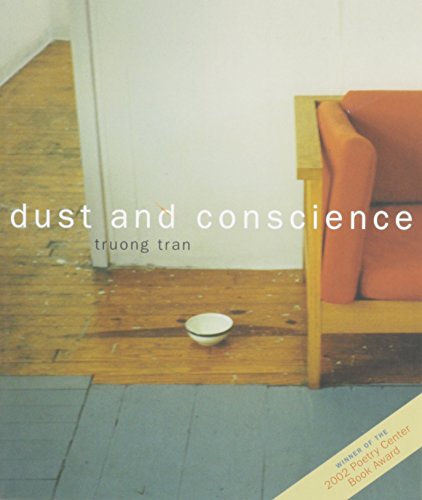I decided right away that I wasn’t going to be obnoxious. We’ve all seen those guys stationed at megamarts, standing behind trestle tables, cupping their hands and hawking their petitions to passersby. Last year I went shopping at Target, and one of them was right there shouting out his lungs. I was so happy that a guy entering the store happened to have a bullhorn. He shoved it in the petitioner’s face and said, “Turn down the volume, decibel-mouth!”
Weather allowing, I spent forty daylight hours a week sitting near the entrance of a grocery store, the store my parents always shopped at. I had three business-friendly initiatives, all having to do with lowering taxes or lifting regs. I didn’t say a word—it was that time of year, and people knew what I was there for, sitting behind a TV tray with three clipboards on it. Most of the customers knew me at least slightly, and they didn’t mind signing to help out a college student in his last summer job before graduation. To tell the truth, it was the best summer job I ever had, except for one horrible, horrible day.
Near the end of my shift, a guy in blue jeans and a checkerboard shirt stopped en route to the store entrance and glowered at me. He was a short thirty-something with a walrus mustache. I’d seen him in the store a few times recently, and knew he was no sweetheart. He’d cussed a lady shopper standing in the way of his cart, and he’d carried on a one-sided shouting match at the checkstand because they wouldn’t take his out-of-date coupon. I wondered if he had started coming here for his shopping needs because the staff at some other store gave him the bum’s rush.
I smiled and held out a pen, hoping against reason that this man was in a mood to sign. “You’re always here,” he said, “always at the call of your fucking fat cat masters.”
Then it began, forty breathless minutes of character assassination, and I had to sit and take it. In his own words, the heckler said over and over that I was an evil minion of shadowy elites using initiative drives to subvert the people’s will. Every tenth word out of his mouth was an obscenity, and he shouted me down the few times I tried to explain my issues or say he was free not to sign anything he disapproved. A fluid audience of three to five people, mostly down-at-heel, gathered at a distance to enjoy the spectacle of this man chewing out a collegiate type with clean uncalloused hands, new slacks and spotless button-down shirt. Every minute or two, the heckler gave himself room to ask, “How much do you get for every signature? Huh? HOW MUCH?” I was getting two dollars for every signature, but I wasn’t going to admit that; the heckler would use it as one more weapon to beat me over the head.
I started counting down from one hundred, after which I would have packed up and gone home. When I got to forty, a strong male voice behind the heckler said, “Not one more word out of you!” It made the heckler stop in mid-sentence and look behind him. A tall twenty-something in a Regis Philbin millionaire suit—jacket, slacks and tie all the same—had been watching from a distance. e stepped through the other bystanders and came forward.
“Who the fucking hell are you?”
“I’m Evert Beale, an associate of Pitney and Pitney, Attorneys at Law.” I recognized the firm from their ads on TV, and the lawyer gave me a subtly conspiratorial glance, just what you’d expect from a newly admitted establishmentarian helping out one on the cusp of admittance. “This young man is paid to take signatures, and you’re preventing him from doing so.”
“Yeah, what about it, shyster?”
“That constitutes interference with employment, as defined in this state’s tort laws. If you don’t stop it right now, I’m going to counsel him to initiate civil litigation against you.”
Two things happened. One of them, totally expected, was that the heckler lost what little was left of his cool and punched the lawyer. The unexpected thing was that the lawyer was ready. He dodged right, and the heckler’s fist barely clipped the edge of his left eye. The first blow having been struck, the lawyer delivered a karate punch that landed on the heckler’s right cheek; the impact of the heckler’s head on a concrete parking bump made less noise. One of the bystanders sprinted away, but the rest of us were too stunned to move while the lawyer asked, “Did you see him hit me first?” Two bystanders said yes, and so did I. The lawyer called an ambulance, got all our names and addresses, and had enough time left to take a selfie of his new shiner while the ambulance was pulling up. After the heckler had been shoved into the ambulance, I heard moans and cusses coming through the gates—they were his first signs of life, and my cue to go home.
The cops questioned me the next day. Five months later I was in court, and saw that the heckler had two canes in the dock with him. I testified and walked straight away, indifferent to how it all came out. A week before the senior career fair, the lawyer sent me a letter explaining how his excellent preparation of evidence had made the prosecutor’s job easy; the heckler got six months in jail, and any future legal needs of mine could be discharged just as efficiently by Pitney and Pitney.
Oh, the initiatives? Two failed to get enough signatures, and the third was voted down. Just saying.

